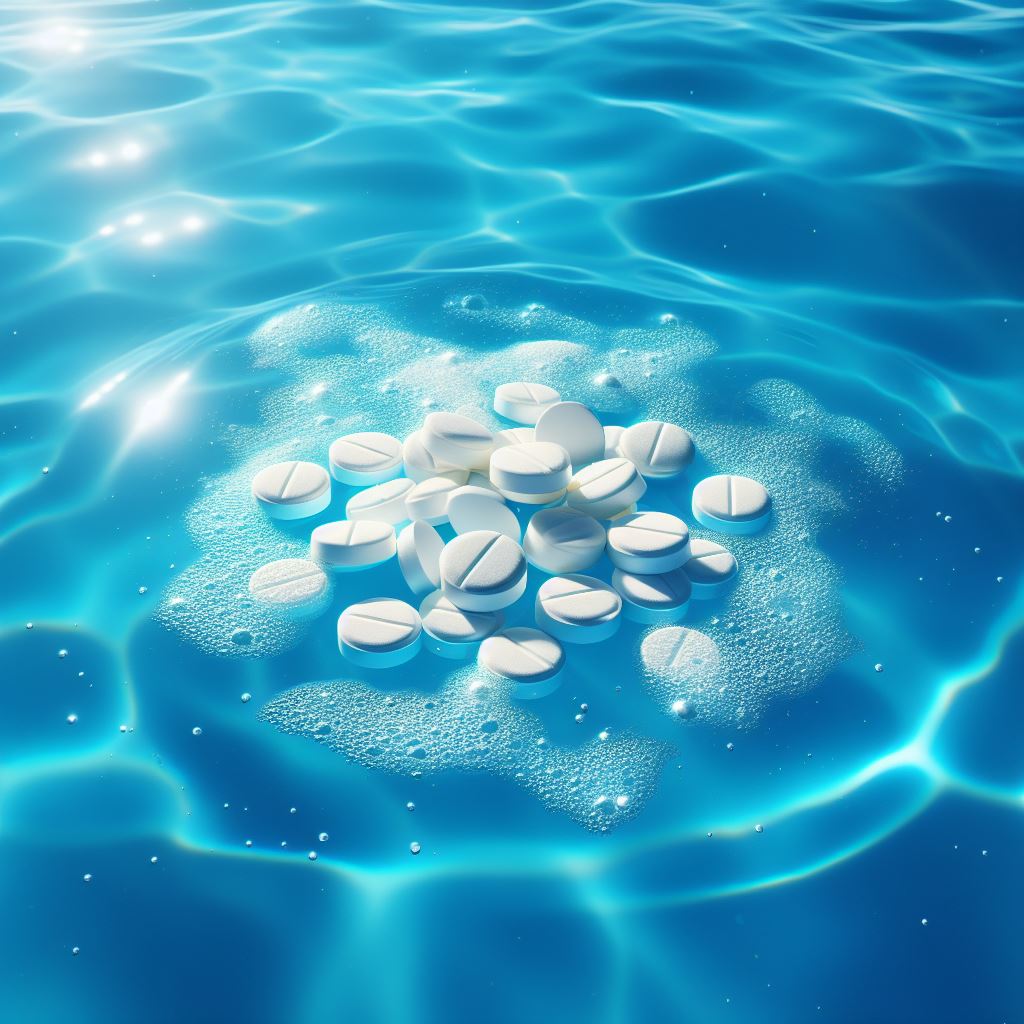In the warm embrace of summer, swimming pools become a haven for families seeking to beat the heat and create cherished memories. However, as parents of infants and young children, navigating the waters of pool safety can be a daunting task, particularly when it comes to understanding the impact of pool chemicals like chlorine tablets on your little one’s delicate health. This comprehensive guide aims to empower parents with the essential safety knowledge they need to ensure a fun and healthy swimming experience for their babies and toddlers.

I. Understanding Chlorine Tablets in Pools
1. Chlorine’s Vital Role:
Chlorine tablets are a common method of sanitizing swimming pools, effectively killing bacteria, viruses, and algae that can cause illnesses. They maintain water clarity and hygiene, creating a safe environment for swimmers.
2. Mechanism of Action:
When dissolved in water, chlorine forms hypochlorous acid, which is responsible for its disinfecting properties. However, it’s crucial to maintain the right balance to avoid harmful side effects.
II. Potential Risks for Infants & Toddlers
1. Skin Irritation:
Infants’ and toddlers’ skin is more sensitive and prone to irritation from excessive chlorine exposure. Redness, itching, or even rashes can occur if the water’s chlorine levels are too high.
2. Respiratory Issues:
Inhaling chlorinated pool water can irritate the respiratory system, causing coughing, wheezing, or even asthma-like symptoms in young children.
3. Eye Irritation:
Chlorine can also irritate the eyes, leading to redness, tearing, and discomfort. This is particularly concerning for babies who may not be able to communicate their discomfort effectively.
III. Taking Precautions Before Swimming
1. Check Chlorine Levels:
Before entering the pool, ask the pool staff about the current chlorine levels. Ideally, they should be within the recommended range (usually 1-3 ppm for recreational pools).
2. Rinse Off:
Encourage your child to shower or rinse off before swimming to remove any sweat, dirt, or sunscreen that can react with chlorine and increase irritation.
3. Wear Protective Gear:
Consider using swim diapers for babies and toddlers to minimize the risk of fecal contamination in the pool water. Additionally, goggles can protect their eyes from direct contact with chlorine.
IV. Monitoring During & After Swimming
1. Stay Vigilant:
Keep an eye on your child while they swim, ensuring they don’t swallow pool water or spend extended periods in the water, which can increase exposure to chlorine.
2. Prompt Showering:
Immediately after swimming, rinse your child thoroughly with fresh water to remove any residual chlorine from their skin and hair.
3. Observe for Symptoms:
Pay attention to any signs of skin or eye irritation, respiratory distress, or unusual behavior that may indicate a reaction to chlorine.
V. Managing Chlorine Sensitivity
1. Consult a Doctor:
If your child exhibits sensitivity to chlorine, consult a pediatrician for advice on how to manage future pool visits. They may recommend using pre-swim lotions or avoiding pools altogether.
2. Natural Alternatives:
Consider exploring natural swimming ponds or saltwater pools, which use different methods of water sanitation that may be gentler on sensitive skin.
VI. Promoting Safe Pool Practices
1. Educate Yourself:
Stay informed about pool safety guidelines and the latest research on chlorine’s effects on children.
2. Advocate for Better Pool Management:
Encourage pool owners and managers to maintain optimal chlorine levels and regularly test the water quality.
3. Lead by Example:
As parents, model good pool hygiene practices, such as not swimming when sick, to instill healthy habits in your children.
VII. Embracing the Benefits of Swimming
1. Physical Development:
Swimming is an excellent exercise for infants and toddlers, promoting muscle development, coordination, and balance.
2. Mental Stimulation:
Water play stimulates the senses and encourages creativity and exploration.
3. Bonding Time:
Shared swimming experiences can strengthen the bond between parent and child, creating lasting memories.
Conclusion
In conclusion, while chlorine tablets play a vital role in maintaining pool hygiene, parents must be vigilant about their potential impact on infants and toddlers. By understanding the risks, taking proactive precautions, and promoting safe pool practices, we can ensure that our little ones enjoy the many benefits of swimming while minimizing any potential health hazards. Let’s work together to create a safer, more enjoyable swimming environment for all.

 Instant
Quote
Instant
Quote Email
Us
Email
Us